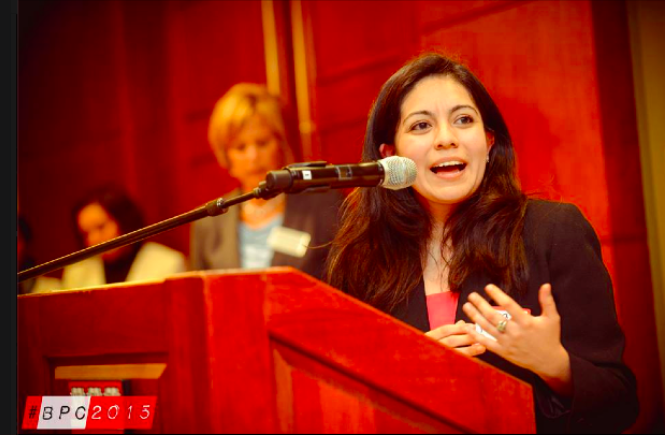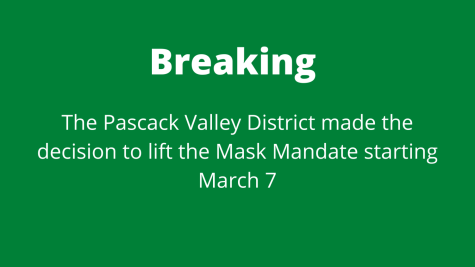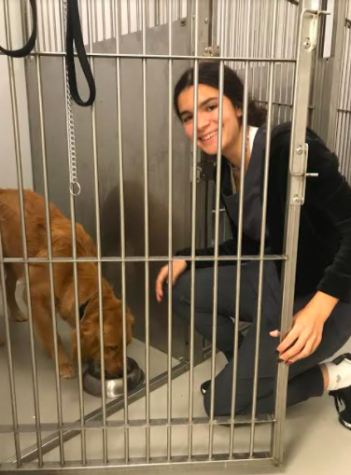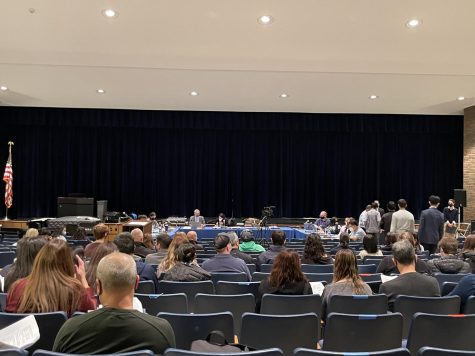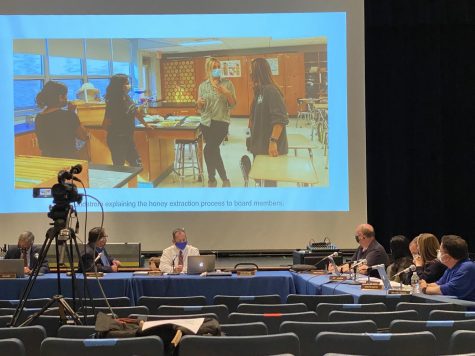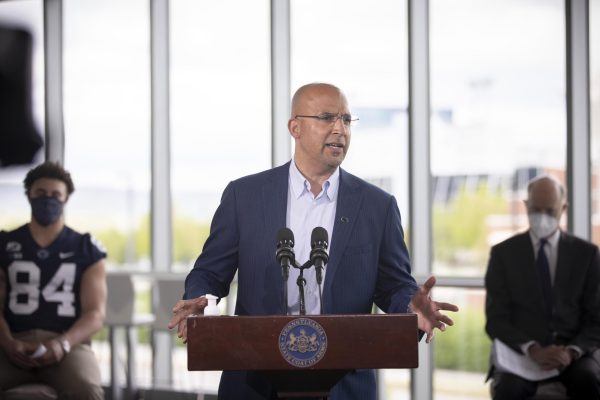‘It was a key to her livelihood’
AP Spanish students reflect on interview with immigrant
Contributed by Norma Torres Mendoza
Norma Torres Mendoza grew up in the United States as an undocumented immigrant from Mexico and went on to become a D.A.C.A. recipient. She shared her struggles and experiences though a virtual interview with students of the AP Spanish class.
Following the abrupt leave from school on March 13 per New Jersey Governor Phil Murphy’s orders, our AP Spanish class — like every other class — was forced to adapt to a new digital learning environment. This presented particular challenges for language classes, which emphasize constant practice of the target language in speaking, listening, reading, and writing.
Our understanding of various communities in the Spanish-speaking world is an integral part of our AP Spanish education. Within the class, we are given the opportunity to interview members of these communities to gain insight into their way of life and responsibilities, as well as put the dialect into real-life practice.
Typically, these interviews are held during class time with individuals and organizations operating in places such as Argentina, Chile, and Colombia. In the midst of virtual school days, these eye-opening interviews have continued, simply taking on a new form thanks to Google Meet.
Our class still managed to host three interviews that were arguably some of the most rewarding of the entire year. Among those was our discussion with Norma Torres Mendoza, who we interviewed on April 24.
The educational journey
Mendoza was born in Queretaro, Mexico, to her single mother, and later immigrated to Houston, Texas in the back of an eighteen wheeler, looking for a better life than the one she knew. She grew up in the United States as an undocumented immigrant, and, later on, became a D.A.C.A. recipient. Her passion for learning was evident from the start, as she went on to attend Rice University for her bachelor of arts degree and MBA and Harvard University for her masters in public policy.
Mendoza mentioned her desire to make an impact in her community, and at 19 years old, she co-founded the Young Owls Leadership Program – a non-profit organization that aims to encourage students and provide resources to adolescents in the Houston area to be first generation college students.
Being a member of a large family with about fifty cousins, Mendoza set herself apart by becoming the first in her family to earn a college degree. She established the Young Owls programs to provide this same opportunity for aspiring students with high potential.
In her case, as well as in the case of many students with which the non-profit works with, college is not always a guarantee. This step in the educational journey is not engrained in every student; if one comes from a family without college degrees, the proper help is essential so that a college degree becomes attainable.
The struggle behind being an immigrant
Mendoza’s experience as an undocumented immigrant was eye-opening and certainly the most important enhancement to our unit centered around identity. Hearing her story firsthand is unparalleled to reading or watching a video about it. It is the connection our class made with her that offered a deeper understanding about the experience of being an immigrant, especially in the United States.
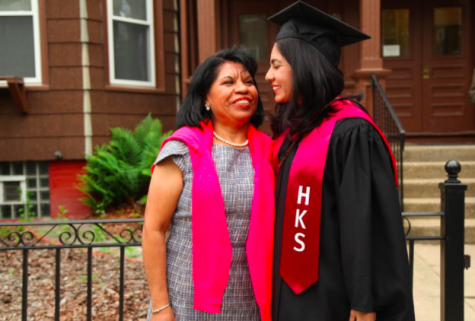
One of the first things that stood out as we listened to Mendoza was the ongoing fight that immigrants battle every day. For many, their first obstacle is finding a way into the country, whether legally or illegally. Such a challenge is only one in a long list of hardships. Some face violence, hunger, or poverty in their places of origin, which gradually push them out over time.
Particularly for parents, it is not an easy decision whether or not to pursue establishing a new life in a place entirely foreign. However, what may seem as a transition from poverty in their own community to poverty in a new immigrant community is actually considered by many to be a sacrifice worth the risk.
Mendoza described that for her mother and for many other immigrant parents, this decision reflects the prioritization of the future of their children. Despite having to uproot their own lives and face new hardships, parents are able to provide a more well-defined path to success and prosperity.
Their children are their investment.
But even after gaining entry into the United States, it can seem as then the real battle begins. Many are forced to give up their certifications or qualifications upon crossing the border. Being in a new environment, finding a job proves to be difficult, often subjecting immigrants to take jobs for which they are extremely overqualified.
The attitude of society toward immigrants, especially undocumented ones, can create feelings of isolation for people who were forced to make decisions for their own security and wellbeing. It is not always within the power of immigrants to defend themselves in certain situations, especially when they lack proper documentation. Oftentimes, there are few resources available to empower them.
Mendoza also shed light on the underestimation of immigrants, many times due to speculation concerning language barriers. The perception of an immigrant’s learning capabilities is typically low, due to the pervasive notion that the majority are unable to speak English. Being someone who spent years in the American education system, Norma expressed the frustration some immigrants face simply because their first language is not English. The immigrant population is not only misjudged, but limited.
It was her strength of character and her commitment to furthering her educational development that motivated Mendoza to continue to surpass the expectations that others set for her. She had her own sights set on the future she wanted to create and knew the path to it included earning her degree.
Mendoza kept the value of education close to her heart and sought to gain as much from the experience as she could; through the good and the bad, she took it in stride, and used these experiences to grow. While education can often feel like a chore for us, it was key for her livelihood.
For us, these were perspectives we had never previously considered.
‘The beauty of a language’
Having overcome countless obstacles, Mendoza has inspired many of us to chase our dreams and face challenges head-on. Being forced to live with the constant fear of deportation — for her and her mother — was a part of life with which she had grown all too familiar, but she continued on in hopes of improving her life through her college education.
Because we are also anticipating our college years, Mendoza urged us to engage in difficult conversations, to voice our opinions without hesitation, and to connect with others from all different cultures and backgrounds. She advised that we be sure to speak up, but also to listen. From this, we can expand our knowledge and look at topics from another view.
It is with world language classes where the possibilities of understanding more of the world around us is possible and fulfilled, especially due to the connections we make with people who have experienced life through different lenses than ourselves. Sometimes, our own upbringing can blind us from the realities of other people; in order to truly grasp the many realities of the complex world around us, it is essential for us to consider different perspectives, and different people.
Languages connect people who might otherwise be separate, and such connections yield understanding of one another, even those that span over continents.
Such is the beauty of a language: it has no barrier.
Not only does it open communication between people, but it manifests understanding of others and their cultures; we need more of such understanding.
Although the pandemic has made it challenging to continue with a dynamic classroom experience, it presents us with an unprecedented situation and an opportunity to improve our understanding of people outside of our immediate community. By restricting our time with those who are familiar to us, the coronavirus has provided us with quite possibly even more time to deepen our understanding of others.


